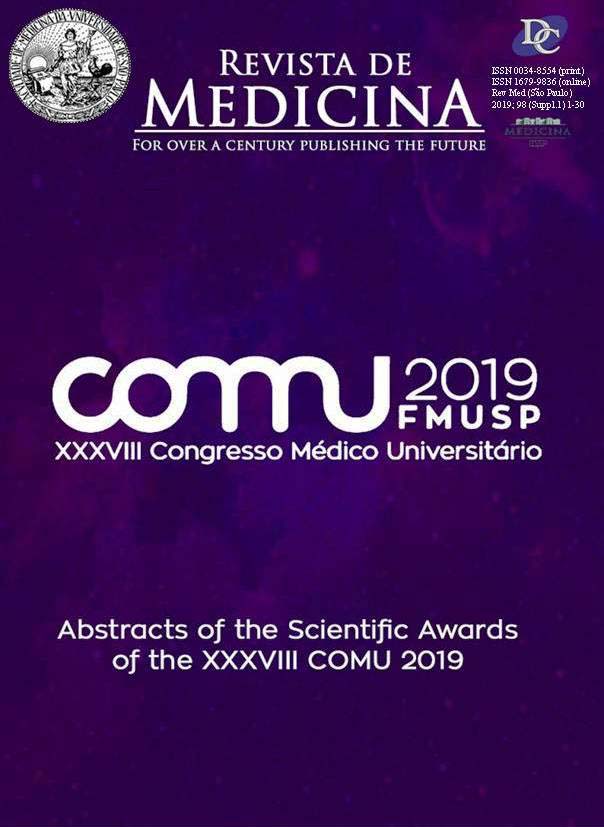Therapeutic alternatives and application of bacteriophages as a strategy in the use of antibiotics in the treatment of bacterial diseases
DOI:
https://doi.org/10.11606/issn.1679-9836.v98iSupplp28-28Palavras-chave:
Therapeutic alternatives, Bacteriophages, Antibiotics treatmentResumo
Introduction: In 1940 Alexander Fleming discovered the antibiotic, which proved to be effective in combating bacterial diseases, but he simultaneously had the unfortunate evidence of bacterias being able to become resistant to this drug (multiresistance). This problem has extended to the present day, becoming internationally a major reason for poor quality of life, hospitalization and even the death of thousands of people. An estimate made by the World Health Organization is that by 2050 the superbacterias can be responsible for about 10 million deaths a year and, besides that, it will generate a cost of approximately 84 trillion dollars for the global economy.
Objectives: To identify the possible therapeutic alternatives exclusive or complementary to the use of antibiotics in the treatment of bacterial diseases.
Methodology: To achieve the objectives, information from scientific articles and research sites such as CAPES, SciELO, Pubmed, CNPq and FAPESP platforms will be used.
Results: It was possible to identify alternatives already in development such as hemofiltration devices, quorum detection inhibitors, advanced immunotherapies and alternative efforts to limit virulence. In addition to these, two practices widely used by the population, but on a smaller scale for bacterial diseases, are homeopathy and herbal medicine, considered within integrative medicine. Finally, the most promising alternative found was bacteriophages, discovered shortly after antibiotics, but they were developed and applied only in the eastern world, in a few regions such as Russia. The bacteriophage acts only on the bacteria causing the disease, irreversibly binding to its membrane, at which point lytic proteins promote a pore that culminates in its death. However, it is of extremely important for the problem to be solved by its root: unnecessary and excessive prescription of antibiotics in the medical area, banalization of its importance and incorrect administration of patients.
Discussion and Conclusion of the results: Initially, it is necessary to prevent the occurrence of new cases of bacterial resistance with primary prevention measures, such as disseminating this knowledge to both prescribing professionals and patients who use antibiotics. However, in cases where this adversity has already taken place, finding these various alternatives takes a prominent role in the attempt to reverse them and generate a scenery of hope as to its effectiveness and also its applicability.
Downloads
Downloads
Publicado
Edição
Seção
Licença
Copyright (c) 2019 Revista de Medicina

Este trabalho está licenciado sob uma licença Creative Commons Attribution-ShareAlike 4.0 International License.




